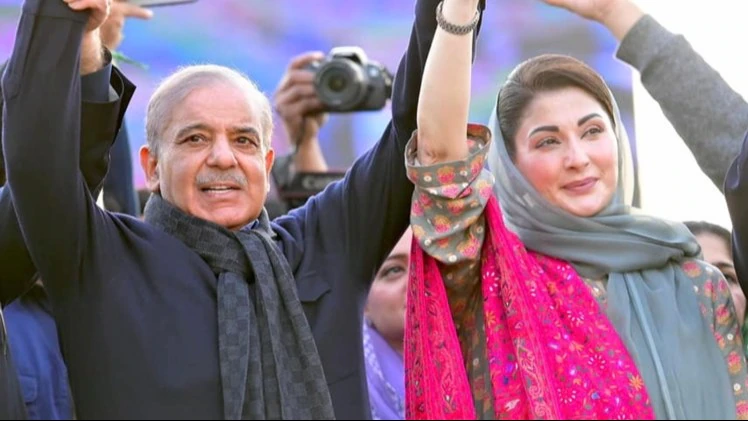Shahbaz Sharif was chosen to lead Pakistan again, bringing an end to the political stalemate following an inconclusive election. Until February 14, 2024, the efforts to get a second largest party to join the government to ensure stability were underway. Sharif was made as the coalition candidate for the next premier by his elder brother Nawaz.
The Pakistan People’s Party (PPP) of foreign minister Bilawal Bhutto Zardari backed the choice but did not commit to joining the government from the outside. Meanwhile, the independent members of the PTI backed by Imran Khan formed the largest group in the legislature and were at loggerheads with thr powerful military, alleging the vote was rigged.
Following elections in Pakistan, marred by rigging allegations delay in results, protests and economic crisis, Shahbaz Sharif was chosen to lead the country again. Seventy-two-year-old Sharif served as the country’s party for 16 months he was named as the coalition candidate for the next premier by his elder brother Nawaz, the founder and supremo of thr Pakistan Muslim League Nawaz (PML-N), the largest party in parliament.
In a press conference, Shahbaz Sharif announced that Maryam Nawaz, his daughter as the Chief Minister of the Punjab Province. In a post on X, Maryam said that her father did not want her to run a minority coalition government having had clear majority in three previous stints as premier. Their PML-N party controls only 80 seats in the 264-seat parliament but has been promised support by six other parties for a majority.
The Pakistan People’s Party (PPP) of former foreign minister Bilawal Bhutto Zardari, the second largest backed the choice but did not commit to join the government from the outside, indicating it would support a minority government from the outside. Officials in both PML-N and PPP said they had formed internal committees to discuss the modalities of government and the agenda including getting the PPP to join the administration and take cabinet positions.
Imran Khan’s Tehreek-i-Insaaf party has alleged that the vote was rigged and vowed to legally challenge the results. The caretaker government and the Pakistan Election Commission have rejected the accusations. Analysts had hoped that elections would bring a solution to the crisis in Pakistan, but the verdict split and a large number of independents at loggerheads with influential military, could only mean more instability.
Pakistan recorded 47.6 percent voter turnout in February 8, 2024 election which was lower than previous one in 2018 when 52 percent of voters cast their ballot. According to a report, as many as 60.6 million voters exercised the right to vote in Pakistan 12th general elections showing that nearly 5.8 million more people voted in elections as compared to 2018 when 54.8 million had cast their votes.




















Comments